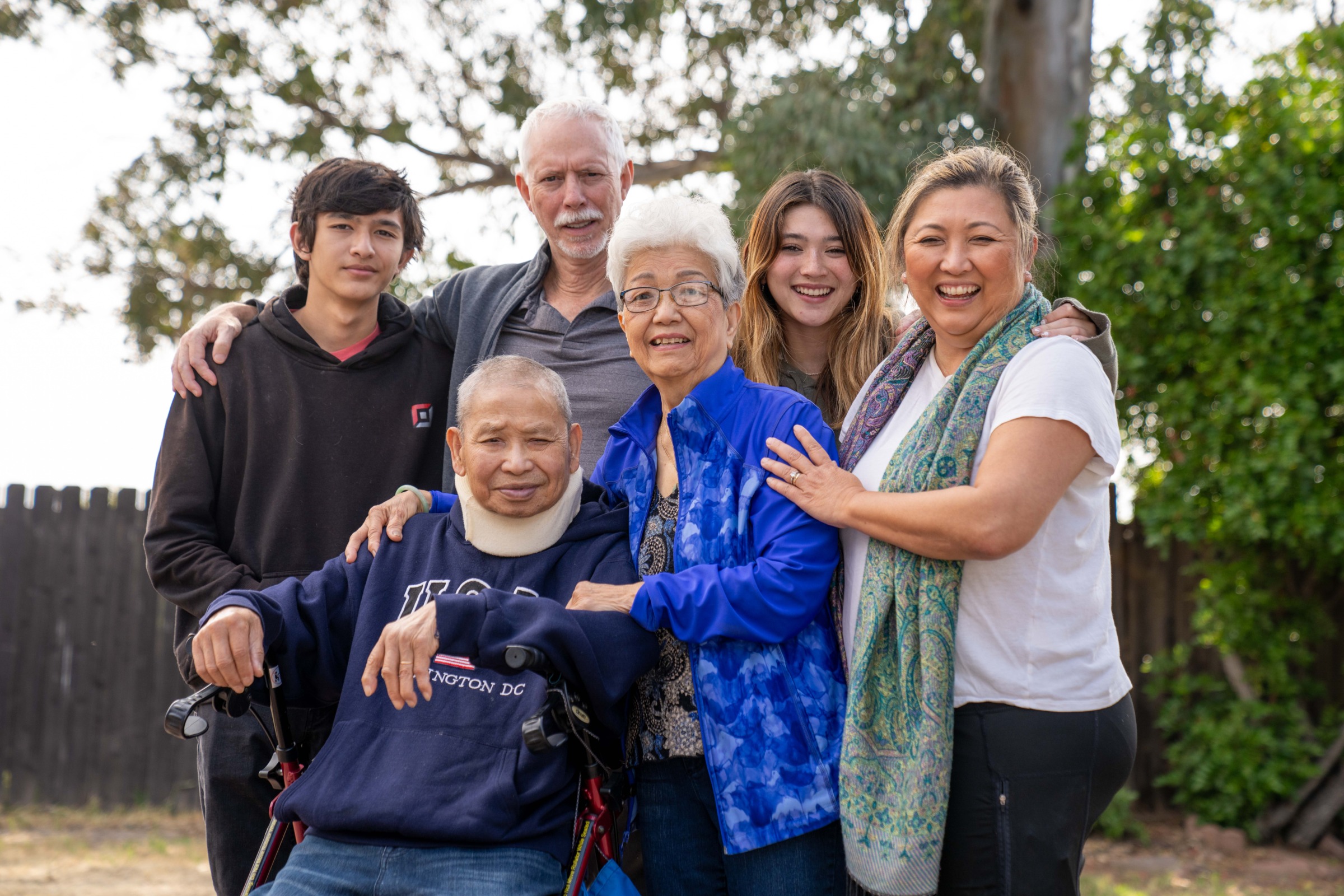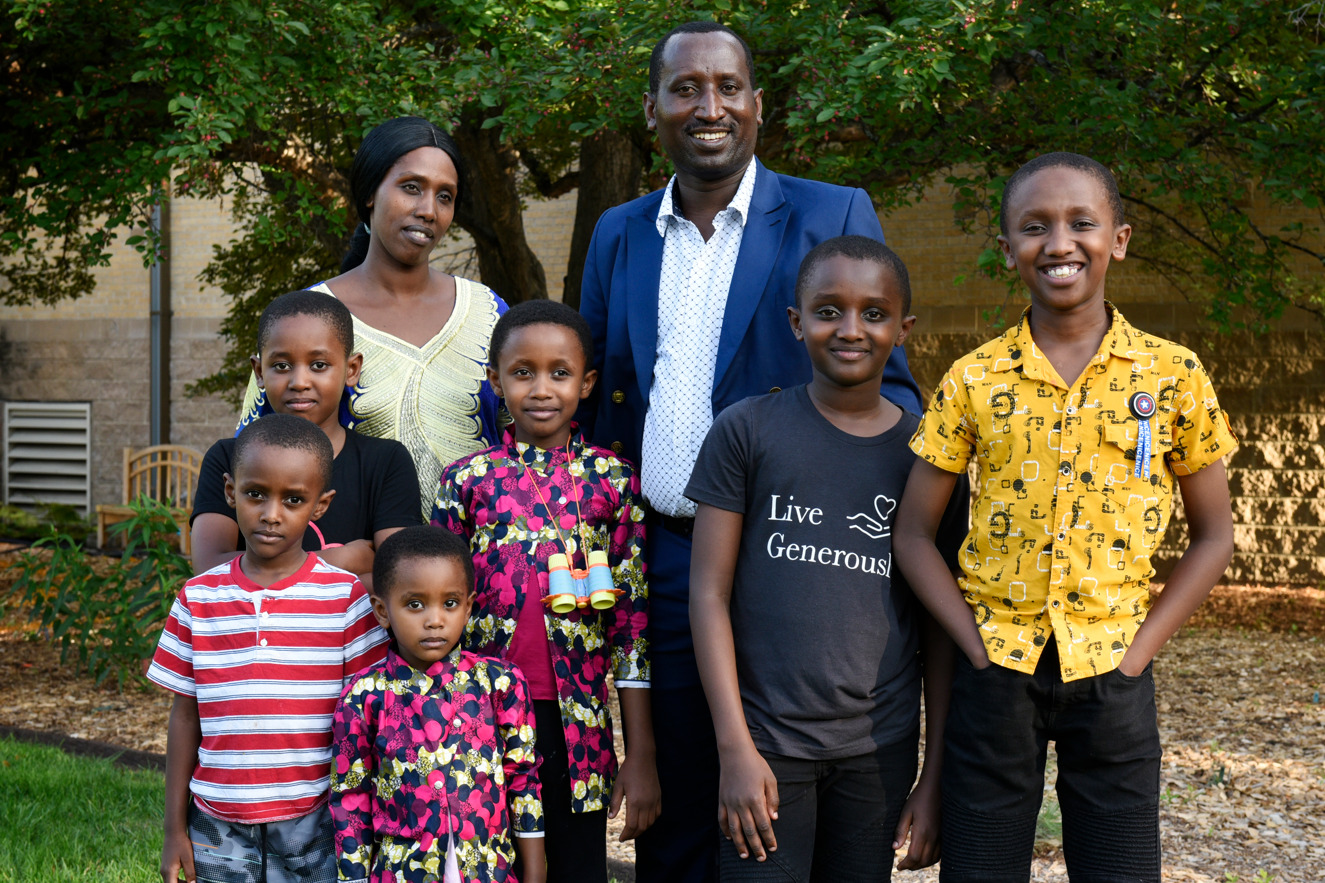The browser you are using is not supported. Please consider using a modern browser.
Combatting Disinformation
Immigrants make the U.S. stronger
Learn the facts about immigrants and refugees and work to counter harmful narratives.

Disinformation and hateful rhetoric about immigrants and refugees are everywhere… on social media, in political speeches, on the news, and beyond.
At Global Refuge, we know the truth: immigrants and refugees make the United States a better place. Not only is welcoming newcomers the right thing to do, it's the smart thing to do.
Myth vs. Facts
Debunking Common Misconceptions about Immigrants & Refugees in the U.S.
Myth: Most immigrants are coming to the United States illegally. They need to come the right way.
Fact: Refugees, asylees, and other immigrants here who’ve fled their countries are sometimes called “illegal.” But these newcomers have sought and maintained lawful statuses under U.S. law.
Refugees are admitted through a lawful immigration pathway established by the Refugee Act of 1980 and undergo stringent security vetting before arriving in the United States. They are admitted legally as refugees, are work authorized, and are placed on a path to getting a Green Card.
Other humanitarian entrants have parole or Temporary Protected Status. These protections were codified into law decades ago and have been utilized across administrations of both parties.
And regardless of someone’s manner of entry, seeking asylum remains a legal right – and more than that, it’s a cornerstone of U.S. and international law.
Myth: Refugees and immigrants take American jobs.
Fact: With more than 7 million unfilled jobs nationwide at a time of low unemployment, immigrants are essential to filling in the gaps in the American workforce. Immigrants are also more likely to contribute to job creation than displacement, with more than 55% of the country’s billion-dollar startups founded by immigrants.
Myth: Refugees and immigrants don’t pay taxes and are a drain on our nation’s resources.
Fact: Refugees and asylees contribute significantly to U.S. communities—both economically and culturally. Refugees and asylees contributed an estimated $581 billion in federal, state, and local tax revenue from 2005 to 2019, far outpacing government expenditures to support these populations. In some cases, they pay into Social Security without reaping its benefits. Most importantly, they are our doctors and nurses, our well-known chefs, our favorite musicians, our overnight construction workers, our local shop owners, our neighbors, and so much more— contributing to the vitality of American life.
Myth: Immigrants and refugees are not authorized to work.
Fact:
Refugees, people seeking asylum, and immigrants entering the country on certain visas are able to obtain legal work permits. What’s more, foreign-born workers made up 19.2% of the civilian labor force in 2024. Immigrants are an essential part of the American workforce.
Myth: Refugees and immigrants are unskilled workers.
Fact: Immigrants and refugees in the United States fill essential positions at all levels of skill. Immigrants are farmworkers, hospitality workers, doctors, nurses, computer programmers, educators, architects, logistics specialists, emergency services staff, and much more. The United States depends on those contributions at all levels; in 2021, for example, nearly 2.8 million immigrants worked in healthcare in the U.S. — accounting for about 18% of the sector and serving in countless different positions. Of those in upper-wage occupations, around 75% of immigrants work either in IT, management, or finance, and most serve in high-ranking, high-skilled positions such as software developers or CEOs. No matter their level of work, immigrants make the U.S. stronger and more productive.
Myth: Refugees and immigrants commit more crimes and make the country more dangerous.
Fact: Research has proven time and again that there is no link between immigration and increased crime rates and that immigrants are 60% less likely to be incarcerated than their native‐born peers. In fact, some studies show that increased immigration results in lower crime rates—meaning immigrants make the United States safer for all.
Myth: Refugees and immigrants will change voting patterns in the United States.
Fact: Immigrants, like natural-born citizens, represent a wide variety of political leanings. Polls consistently show that immigrants and refugees do not uniformly support one political party. In fact, a 2023 Los Angeles Times poll revealed that, when asked “Which U.S. political party best represents your views?”, 52% of immigrants and refugees polled responded “Neither or not sure.” While immigrants and refugees may become eligible to vote after obtaining citizenship, the process of naturalization and voter registration takes a minimum of five years for most (and accusations of undocumented immigrants voting in U.S. elections are virtually baseless).
Myth: When the U.S. welcomes refugees and immigrants, we neglect other underserved groups.
Fact: While refugees and immigrants face unique challenges, their needs are often quite similar to those of other underserved communities who face discrimination, poverty, and lack of adequate health care, among other challenges. Welcoming and addressing the shared needs of immigrants and refugees can help create policy changes that benefit all underserved groups. Studies have shown, for example, that rather than lowering wages due to competition, the immigrant workforce has instead supported higher wages for all populations. States like Colorado and Washington have expanded affordable health coverage initiatives that not only aim to include undocumented immigrants but also enhance access for all residents. These policies contribute to stronger public health systems and improved outcomes for every community member. When we work toward fairness, we work toward a better society for all.
Myth: Most Americans don’t support immigration or a path to citizenship for undocumented people.
Fact: Despite harsh rhetoric and extremism in the media and beyond, most Americans support bipartisan solutions on immigration. Recent polling shows that 81% of voters in battleground states support a pathway to citizenship for immigrants who have been living and working in the United States for years, while other polls have shown that a record high 79% of Americans believe immigration is a good thing for our country. Additionally in June 2025, Americans prefer giving most undocumented immigrants a pathway to legal status vs. “deporting most undocumented immigrants” by a 64-31% margin, compared to December 2024 where that margin was 55-36%, indicating shifting opinions towards supporting immigration more.

Immigrant and Refugee Voices
Hear from those who have come to the United States—in their own words.
Experience the Stories
You can change lives.
Explore the many ways to support Global Refuge.
Get InvolvedExplore the many ways to support Global Refuge.
Get Involved